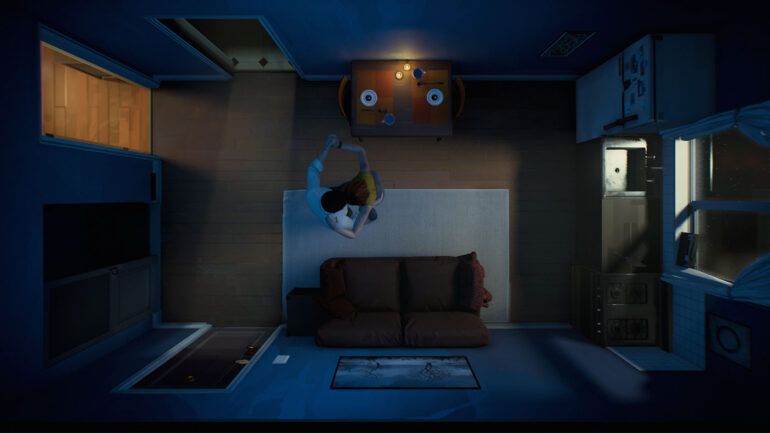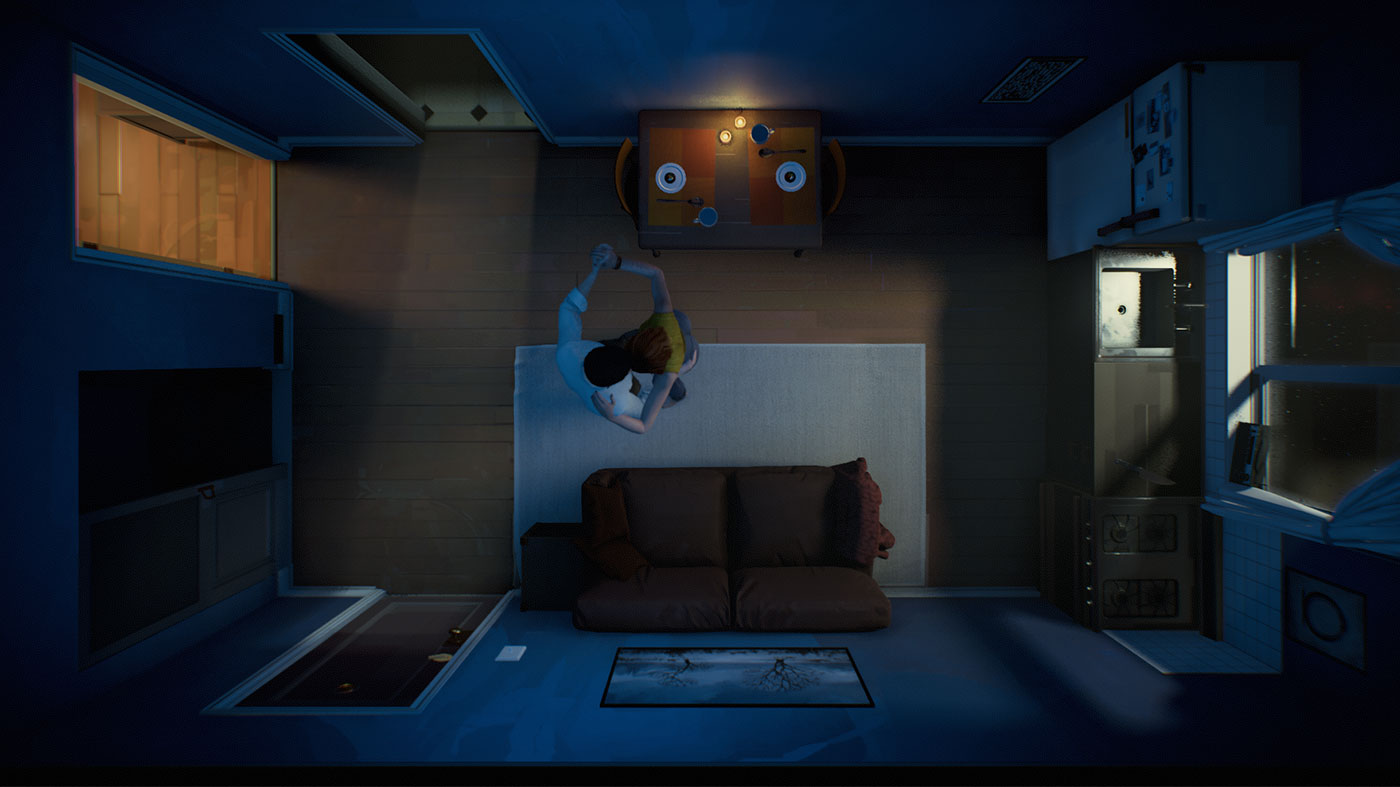Despite being confined in its entirety to a small, one-bedroom apartment, Twelve Minutes feels more like a stage play than a videogame. It delivers tragedy in spades and, despite the ever-ratcheting tension of the script, allows plenty of space for its cast, on loan from Hollywood, to shine. For an independent release of this size to draw in such high-caliber talent speaks to how watertight it is as both a drama piece and a mind-bending puzzle game that honours the point-and-click games of old.
With a knock on the door, a couple’s celebratory evening turns dour as a man claiming to be police ransacks their abode and kills the husband, sending him back to the second he arrives home giving him a handful of minutes to scour the apartment for clues. James McAvoy plays the time-hopping husband very dazed and confused at first as what should be the happiest night of his life coming home to life-altering news over pudding becomes a desperate, perilous arm-wrestle with a with infinity. From a conceptual standpoint, it’s dynamite. The marriage shared by the husband protagonist and his wife, portrayed by Daisy Ridley, is one built on plenty of dark secrets. Thanks to these film-caliber actors, the complexities of this union and its stresses feel believable. With every loop and every ugly revelation with it, we’re forced to pick at it like a hangnail. While it they don’t turn in career-best material, in lesser hands this union would lack any semblance of emotional resonance.
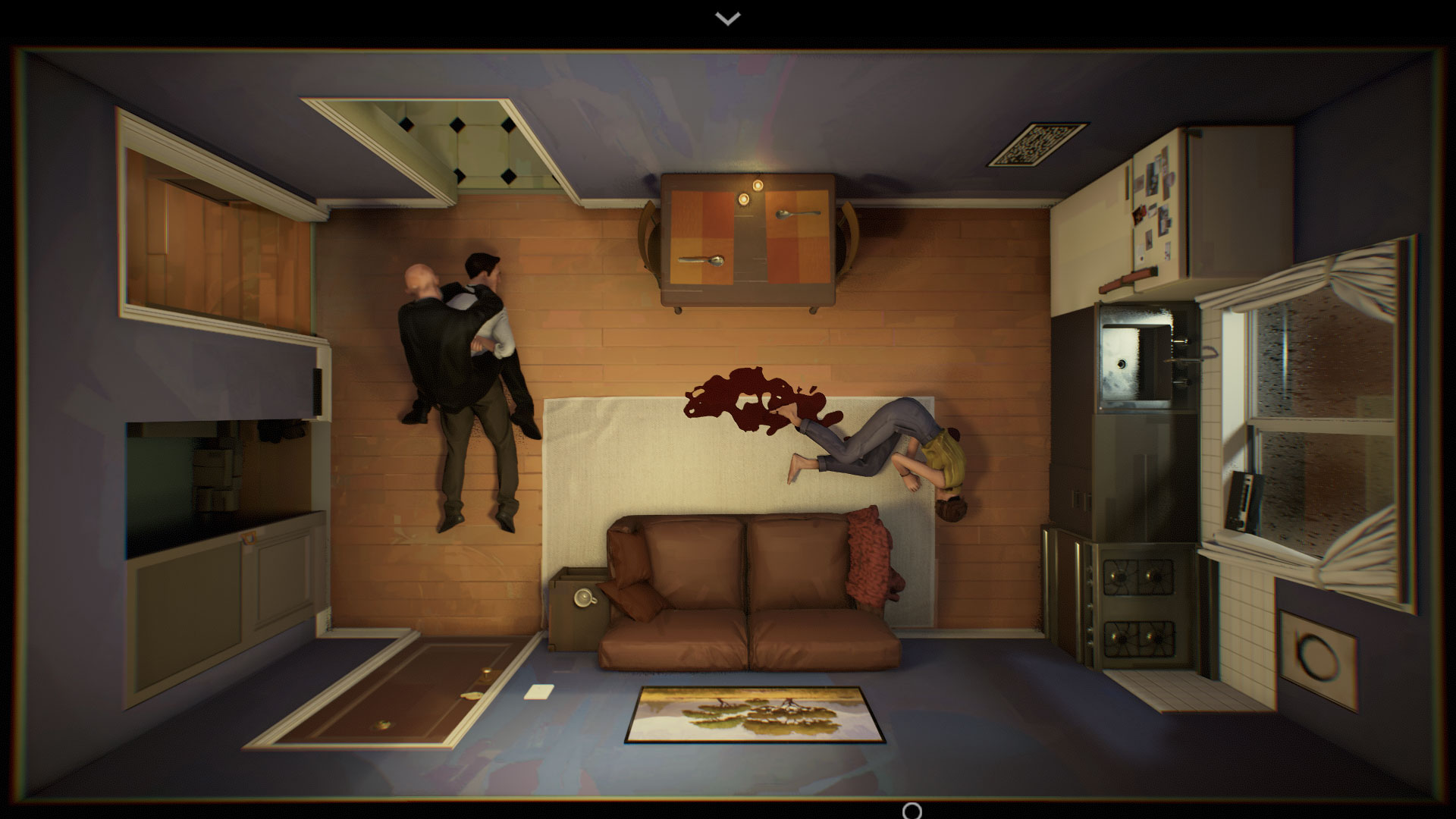
Beneath the surface-level drama, there are lofty ideas operating at the top levels of Twelve Minutes’ plot, and they’re ideas that Luis Antonio, the game’s playwright so to speak, has let marinade for some time. It feels like a thinkpiece on self-affirmation, and the lies we tell ourselves, in the face of nightmarish circumstance, all boiled down into a car crash of an evening on repeat. There’s trauma, there are red herrings, there’s an undercurrent of desperation. It’s the dire, hopeless kind, free of heroics, and it permeates Twelve Minutes and it embeds itself into the heart of every character we meet. It’s definitely a game with a lot to unpack and I can’t wait to read the inevitable summaries.
The runtime will vary depending on the pace at which you’re able to unravel the game’s puzzles, but it took me probably twelve hours in all to see a few of the alternate endings—some idyllic, most not—before rolling credits on what felt like the true ending. I fear there’ll be some like me who’ll reach the third-act twist and put the game down. In the moment I found the story beat to be egregious and amateur. I’m glad I pressed on, however, as it turned out to be far more considered than I’d given it credit for.
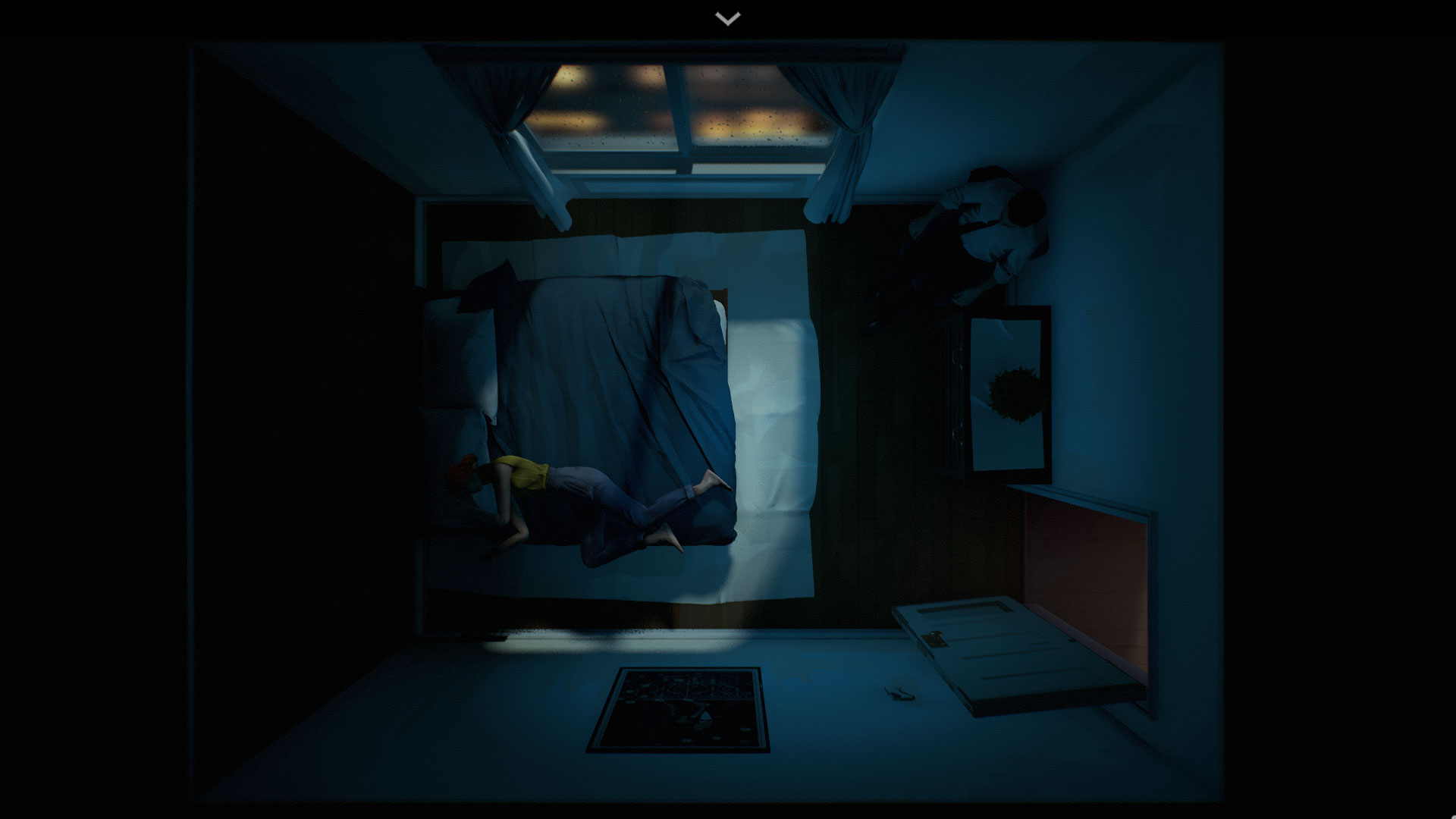
You’ll roll credits twice by the time everything starts to click into place, but I’m sure there’s still more to see even beyond that. After consuming four alternate, more abrupt closes to the story, I feel like I’ve barely scratched the surface.
It honours the roots of classic point-and-click so much that the entirety of Twelve Minutes is played with just a mouse. It’s simple, and the unassuming approach sees the actual hands-on mechanics take a backseat to every Christopher Nolan-esque revelation, which feeds perfectly into the time loop trope that spoils a nice evening for the story’s unnamed couple. With just the left-click, you direct the husband’s every move, you pick up items and interact with things within the apartment, and you can drag items from your drop-down inventory to use on something or someone. You can also combine items, like a mug of water and a bottle of sleeping pills. Of course, brandishing a kitchen knife might seem like a tempting escape rope from the endless misery that follows those dreaded knocks on the door from Willem Dafoe’s menacing, cruel ‘Cop’ but that’s not how Twelve Minutes works. You just can’t brute force the situation. Instead, your only option is to weaponise the knowledge learned in any given loop. Twelve Minutes does a masterful job of drip-feeding and giving the player a nudge toward the pertinent details, but it’s the way these details tie into the game’s puzzles that are most impressive.
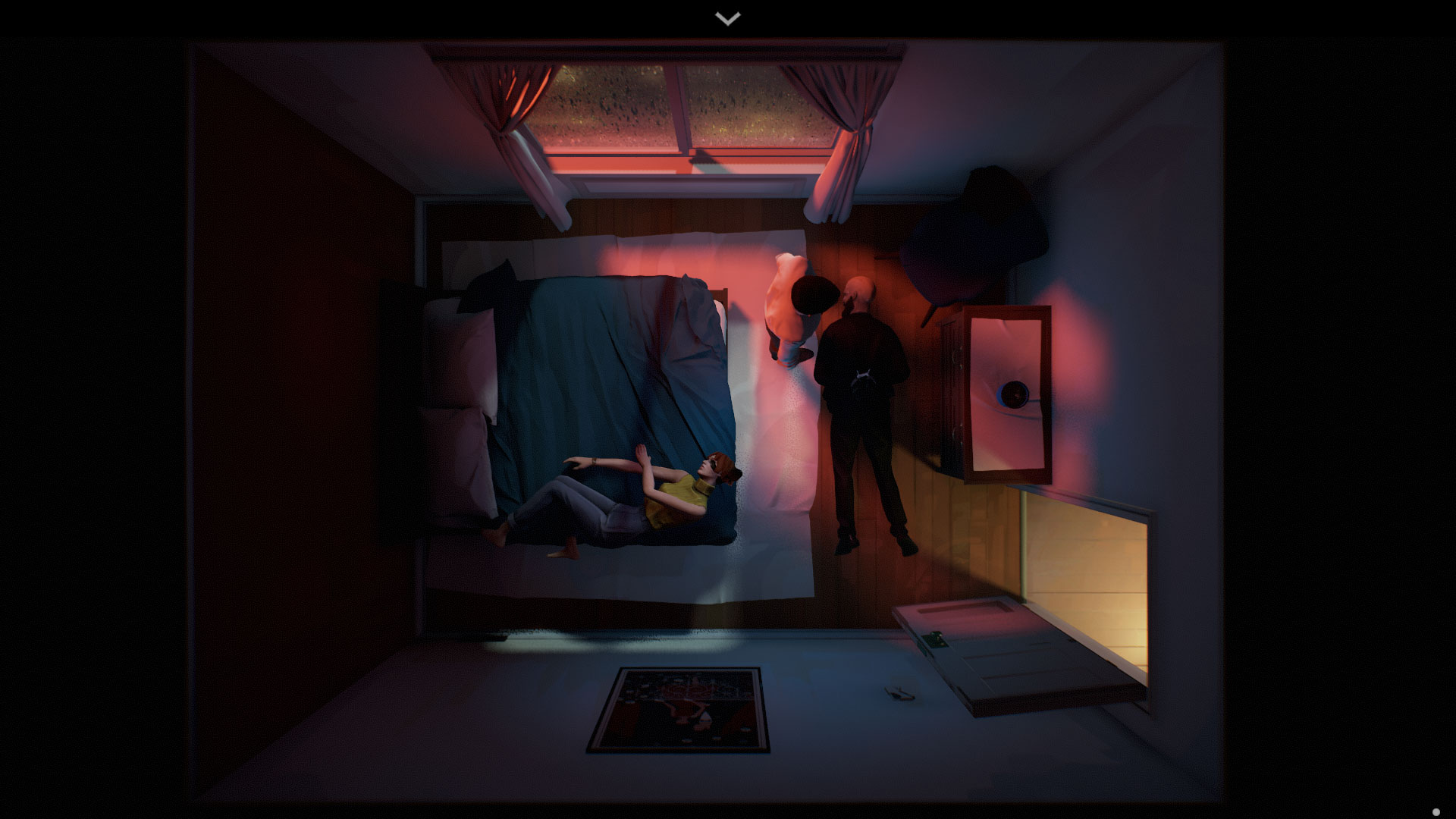
There’s a huge variety in the layered, branching dialogue options on offer. Sadly, they don’t always marry up and flow organically, with tone and aggression jumping all over the place, leaving consistency on the back burner as the switchboard plugging all of the options together begins to misfire a tad. It’s because of this that aspects of McAvoy and Ridley’s performances don’t hit. Also, given the nature of the game’s unspooling narrative, you’re bound to retread a lot of familiar ground. Although it doesn’t account for all of the game’s repetition, it manages to intelligently “checkpoint” certain conversations so that big revelations offer a new dialogue option to skip the larger exposition dumps so you’re not forced to hear them one hundred times over the further you progress.
Though it’s a case of function trumping beauty, I came to appreciate the game’s rather distinct overhead perspective. It’s a clever mask for the fairly rudimentary character models, it also spares us trying to marry performance with animation which lets McAvoy, Ridley, and Dafoe chew the scenery and get creative. It’s a smart design and what we’re allowed to see with the top-down view is detailed and well-lit. Of course, there are times where the weaknesses of the visuals detract from the drama, from the dated, janky animation to the wife’s odd deformed ankles that, at will, bend at right angles.
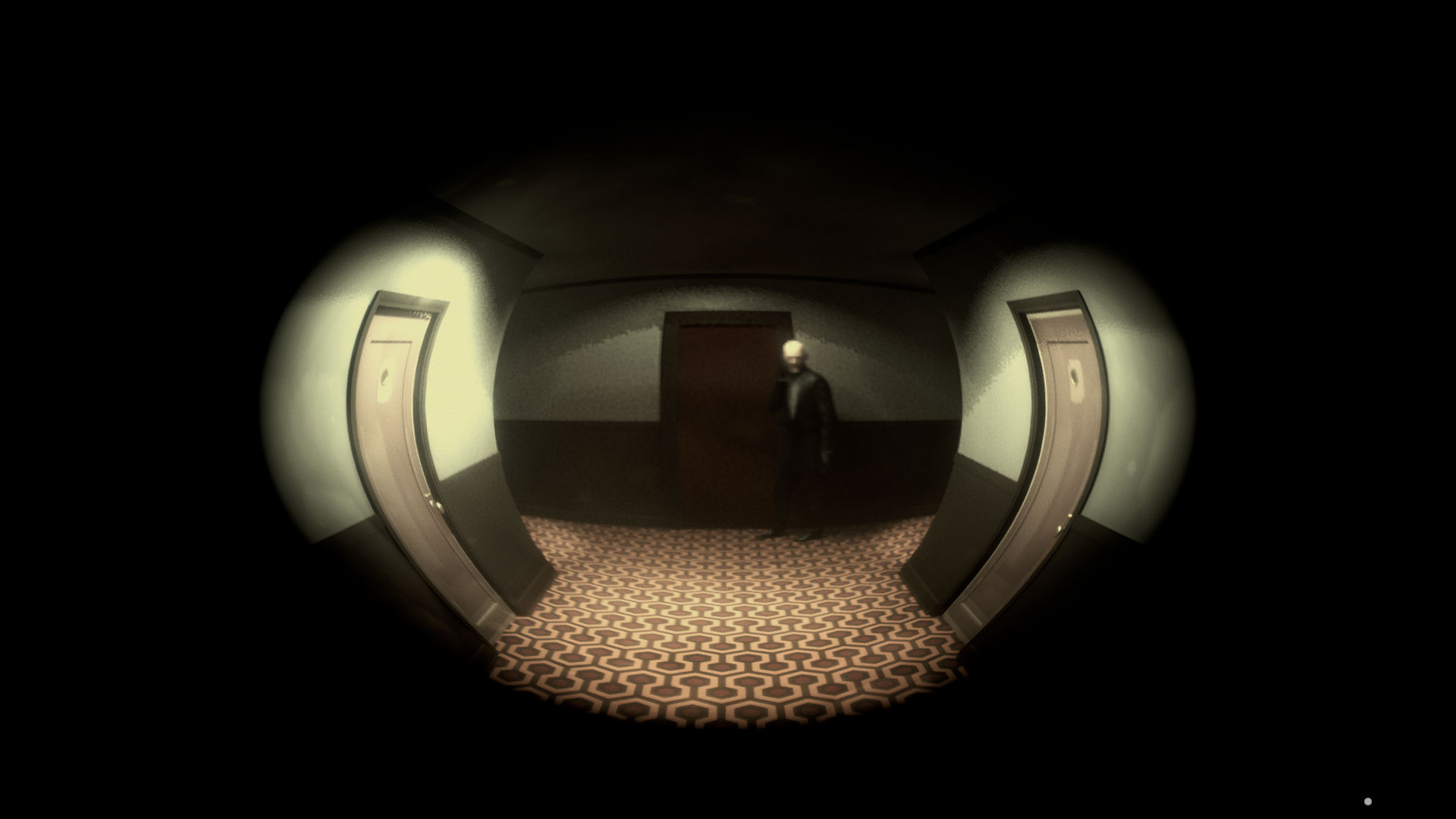
When Twelve Minutes hits, it hits hard. But I feel there’s, at times, such a disconnect between what it wants to do and say that it’s hard to reconcile its moving parts into anything I’d consider truly great. Performances waver as often as they wow, and that’s a result of a very ambitious game. Narratively speaking, it’s got the hallmarks of a Nolan film, and just like any good Nolan film, you’re going to boil the kettle and postulate into the midnight hours.


